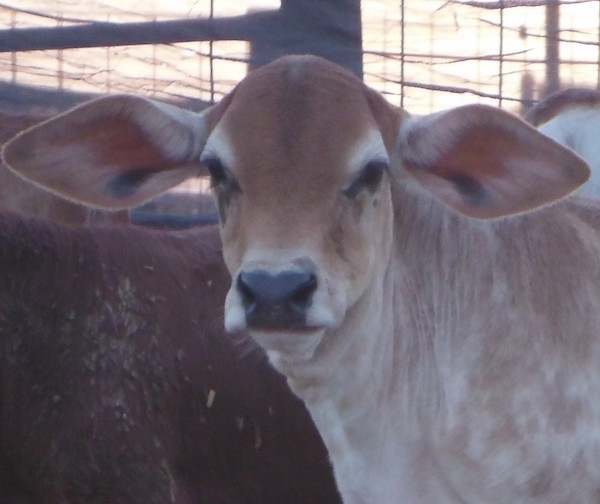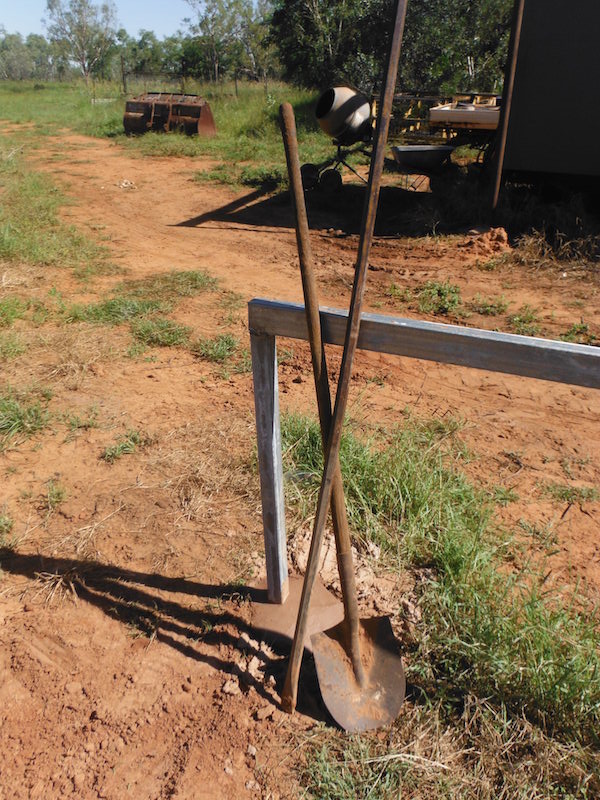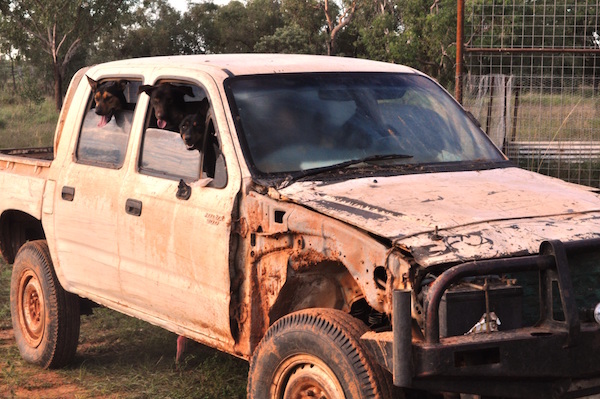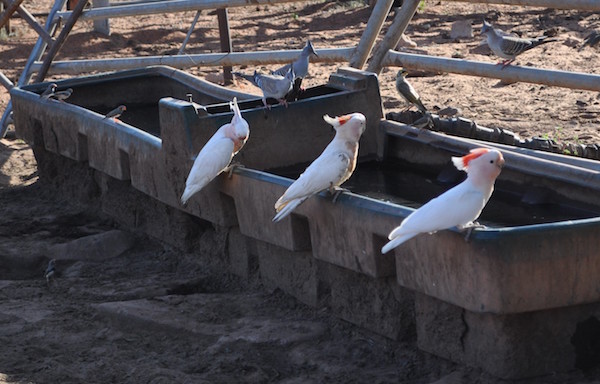You’ve got the job – now what?
Host: Dampier Downs Station
Written by Anne Marie Huey – Owner, Dampier Downs Station.
As another busy year kicks off there will undoubtedly be many first time jillaroos and jackaroos heading north to try their hand working on a cattle station. For most, it will be a huge change and, despite what you may think at the time, a leap into the unknown. This can be a tough industry, but also a rewarding one. Your ability to succeed rests largely on the attitude you bring to the job.
The fact that you now find yourself on a property is due to someone, somewhere, seeing something in you that convinced them you were worthy of a shot. However, just because you have a start does not mean you have a guaranteed free run to the end of the season. You have put your toe on the very bottom rung of a ladder that with commitment, some common sense, and a whole lot of effort will result in the experience of a lifetime. Whether that experience is a positive one, or whether you end up sent home with your tail between your legs is entirely up to you. It will take grit, determination, and sacrifice and will probably result in coming to grips with a few hard truths about yourself.
So what can you do to give yourself the best shot of coming out the other end of the season (relatively) unscathed? For what it’s worth I have jotted downs a few bits of advice that may (or may not) be helpful for those new to the job. Here are my top five tips.
- Be honest with yourself
Firstly, I think it is important to ask yourself the tough questions. Why do you want to work in the pastoral industry? If your primary reasons include the following:
- Because you think cows are cute
- Because you like the idea of riding around on a horse all day
- Because you want to impress the girls/boys in town
- Because of all the fishing/camping/pig hunting you can do on your days off
- Because your current job/school is boring and you’ve spent most of the day checking out Facebook pages such as Ringers from the Top End
then, no, you haven’t thought this through and your likely in for a rude awakening. The first thing to understand is that working on a station is nothing like McLeod’s Daughters. It is a tough job. You will screw things up. You will receive the odd rocket or two from your boss and there may be times where you will find yourself in tears wondering why the hell you gave up your life of air-conditioned of luxury to be pulling dead cows out of bog holes.
You will be battered, bruised, and filthy at the end of most days. Your muscles will ache, your hands will blister. You will see more sunrises than you ever have before and there will be times you will still be going long after the sun has set.
You will miss out on friends’ birthdays, parties, and music festivals. You will not have every weekend off and, when you do, your new social calendar will revolve around rodeos, camp drafts, and race meetings, with maybe the occasional visit to the neighbours (who are likely to be at least a couple of hours drive away) if you are lucky.
But you will also challenge yourself as never before and, when it works out, will be rewarded with a huge sense of pride and self-achievement. So, even if it is nothing like you imagined and you are tempted to quit within the first week, take a deep breath, calm down, and understand this is an opportunity you may never be given again. Give yourself at least a month and if it is still not for you, walk away knowing at least you tried. Quit any earlier and you are likely to sell both yourself and your employer short.
 You think poddy calves are cute? You’re going to need a much better reason than that to find the motivation to get through the tough times.
You think poddy calves are cute? You’re going to need a much better reason than that to find the motivation to get through the tough times.
- Find someone you trust
It’s understandable to be nervous and there will be times when you feel like you can’t cope. As an employer, one of the most frustrating things is when you know a staff member is having trouble but they simply won’t tell you what is wrong. If we don’t know we can’t help. Hopefully your boss (or his wife) will be approachable so if you are struggling, talk to them about it. If you don’t feel comfortable talking to them, find someone you trust to act as a mentor. Of course, you might be told you are being a bit of a sook and to toughen up (tough love is sometimes required in this industry), but bottling things up can be really destructive. Most importantly, when having the conversation don’t approach it as a whinge or blame session, just as an honest discussion. If you can come up with potential solutions, even better.
Having said that, it is important to understand that your boss is exactly that – your boss. They are not there to hold your hand, solve your problems or in any way, shape or form be your mother. Develop a strong sense of self-reliance. It will stand you in good stead, not just in the pastoral industry but wherever life should take you.
- There are no free rides
If you want to be successful in this industry don’t look for excuses. It doesn’t matter if you are not the tallest, strongest, most athletic, or most experienced in the camp, what does matter if giving every job a genuine and determined go. The one phrase every employer loathes is “I can’t because . . . ” There is no ‘can’t’, just not willing to try. Hiding behind the rest of the team may work in the short-term, but it won’t go unnoticed. Not only will you find yourself deeply unpopular with the rest of the camp, it won’t be too long before you find yourself heading down the road with a poor reputation to boot.
Additionally, if you are one half of a couple (or pair) and your partner is skilled but you are new to the industry, still expect to start at the bottom. Even if your partner is head stockman it doesn’t mean you get to pick and choose your jobs. Whether it’s fixing tyres, cleaning troughs or cementing posts – these are all jobs that need to be done. The most respected person in the team will be the one who rolls up their sleeves and just gets on with it.

- Be accountable
The best advice I can give is pay attention, ask lots of questions and – most importantly – listen! Make sure you understand what is expected of you for every job you’re given as mistakes can be very expensive. Take care of gear, no matter how old or battered it may appear. In fact, the older the gear the more care it probably requires. Understand that every dollar your boss has to spend replacing something you’ve lost or broken is one dollar less he/she has to spend on things like fencing, water infrastructure, hay, cattle vaccines – and wages.

You will make mistakes, it’s inevitable. Admit them, take responsibility for them and most of all learn from them.
- Enjoy it
Whether you’re just here for a gap year or aiming to make a long-term career working in the bush, take time every day to appreciate the unique opportunity you have been given. Yes, you will work hard but there is a certain satisfaction to be taken in kicking back at the end of the day, feeling the ache of muscles you never knew you had. Take pride in the knowledge you have put in a solid day’s work and I’ll bet you never look at a gym membership in quite the same way again.
Chances are you will find yourself in an area very few people will ever get to see, so savour the quiet moments in your day where you can really appreciate the untouched nature of your surroundings. Whether it be the wide variety of birds that may visit you while fixing a trough or spotting the odd frill-neck lizard sunning himself on a newly erected picket while fencing, count yourself lucky to be among the few who get out of urban Australia and back to where it all began – the bush.

Welcome to the Top End.
